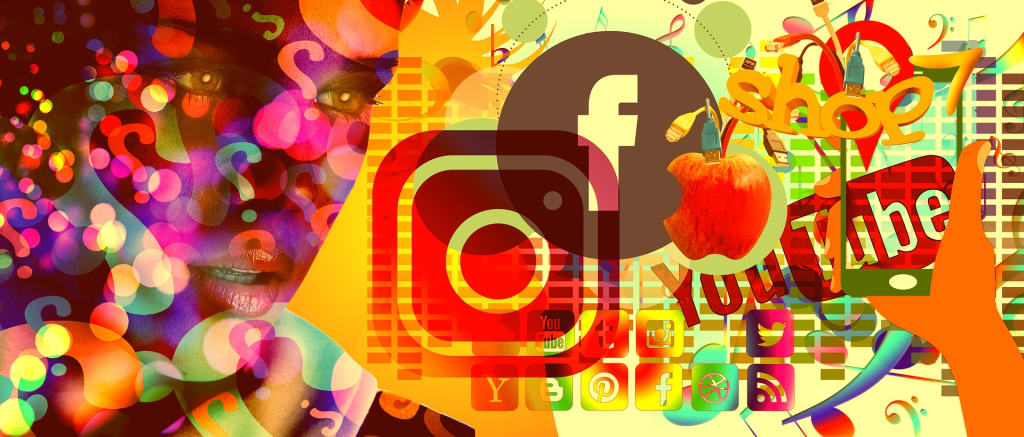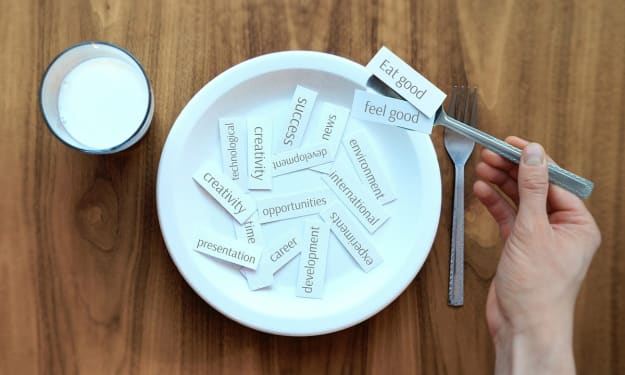The Double-Edged Sword of Social Media
Exploring its Impact on Mental Health

Social media has become an indispensable part of our lives in the digital age. With over 3.8 billion active social media users worldwide, it has transformed the way we communicate, consume information, and even form our identities. However, as much as social media has brought us closer to each other, it has also been linked to negative impacts on mental health. In this article, we will explore the different ways social media can affect our mental well-being, and how we can minimize its harmful effects.
The Positive Side of Social Media
Before we delve into the negative impacts of social media on mental health, it's essential to recognize its positive aspects. Social media has made it easier to connect with friends and family across the globe, build communities around shared interests, and express our creativity through various platforms. It has also given a voice to marginalized groups, raising awareness about important social and political issues.
Moreover, social media has become an essential tool for mental health support and education. Many mental health organizations and professionals have turned to social media to share resources, provide guidance, and offer online counseling services. Social media has also been instrumental in reducing the stigma associated with mental illness, allowing individuals to share their experiences and find validation and support from others.
The Negative Impacts of Social Media on Mental Health
Despite its positive effects, social media has also been linked to negative impacts on mental health. One of the most significant issues is the constant exposure to curated, idealized versions of other people's lives. Social media platforms are designed to showcase only the best moments and achievements of users, which can create a distorted sense of reality and fuel feelings of inadequacy, envy, and low self-esteem. Studies have shown that frequent social media use is associated with higher levels of depression, anxiety, and loneliness.
Another issue is the potential for cyberbullying, harassment, and online abuse. Social media platforms have made it easier for individuals to hide behind anonymity or distance and engage in harmful behavior toward others. Cyberbullying can have severe consequences, leading to anxiety, depression, and suicidal ideation in its victims.
Additionally, social media can disrupt sleep patterns and harm our physical health. The blue light emitted by electronic devices can interfere with the production of melatonin, a hormone that regulates sleep, leading to insomnia and sleep disorders. Furthermore, excessive social media use can lead to sedentary behavior and a lack of physical activity, increasing the risk of obesity, heart disease, and other chronic health conditions.
How to Minimize the Harmful Effects of Social Media on Mental Health
While it's impossible to avoid social media entirely, there are several steps individuals can take to minimize its harmful effects on mental health. Here are some strategies:
Be Mindful of Your Social Media Use: Set limits on your social media use, and take breaks when you feel overwhelmed. Choose to follow accounts that inspire and uplift you and unfollow those that trigger negative emotions.
Use Social Media for Positive Purposes: Engage in online communities that promote mental health and well-being. Share resources and experiences that can help others, and use social media to connect with mental health professionals or support groups.
Be Aware of Cyberbullying and Online Abuse: If you experience cyberbullying or online abuse, report it to the relevant authorities or seek support from trusted individuals. Remember to be kind and respectful towards others online and use social media responsibly.
Take Care of Your Physical Health: Avoid using social media before bedtime, and prioritize getting enough sleep and exercise. Limit your screen time and engage in activities that promote relaxation and stress relief, such as meditation or yoga.
Conclusion
Social media has revolutionized the way we communicate and connect, but it has
About the Creator
Gopikrishna
I’m a man roaming the streets of Tamil Nadu with millions of dreams in mind. I hope here my blog will bring joy to readers. So motivate me by hitting the like and subscribe buttons also anyone can interact with me on a comment session.
Reader insights
Outstanding
Excellent work. Looking forward to reading more!
Top insights
On-point and relevant
Writing reflected the title & theme
Easy to read and follow
Well-structured & engaging content
Excellent storytelling
Original narrative & well developed characters
Expert insights and opinions
Arguments were carefully researched and presented
Eye opening
Niche topic & fresh perspectives
Compelling and original writing
Creative use of language & vocab
Masterful proofreading
Zero grammar & spelling mistakes
Heartfelt and relatable
The story invoked strong personal emotions






Comments (1)
This work highlights the importance of being mindful of our social media use and its potential impact on our mental health. It provides practical tips to minimize the harmful effects of social media and encourages us to use it responsibly.